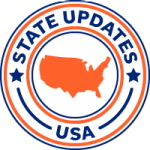Subscribe today to receive notice of our latest thought leadership, articles, blogs and updates.

Policy Matters Brief August 11, 2021
California DWC adopts COVID-19 treatment guideline
The California Division of Workers’ Compensation (DWC) adopted regulatory changes that incorporate, by reference, a Coronavirus (COVID-19) Guideline into the existing Medical Treatment Utilization Schedule (MTUS) ‒ the DWC’s medical treatment guidelines. The DWC specifically adopted the American College of Occupational and Environmental Medicine (ACOEM) COVID-19 Guideline dated March 29, 2021.
The DWC’s treatment guidelines are, by law, deemed presumptively correct on the issue of extent and scope of medical treatment. However, that presumption is rebuttable and may be controverted by a preponderance of scientific medical evidence establishing that a variance from the guidelines is reasonably required to cure or relieve the injured worker from the effects of their injury.
Kentucky workers’ comp proposed UR and bill audit regulation changes modified
The Kentucky Department of Workers’ Claims (DWC) published modifications to their originally proposed utilization review (UR) and medical bill audit regulation changes after receiving public comments. We previously discussed the original proposal, which would add a new DWC medical director position and amend the method by which UR appeals are handled.
Modifications after comments include the following:
- Delays the proposed effective date of the new process to June 1, 2022 (previously January 1, 2022)
- Adds that UR and appeal decisions must also be communicated to the injured worker’s attorney (if represented)
- Adds that when the treatment under appeal is chiropractic treatment, the DWC medical director shall seek the assistance of a qualified chiropractor
- Extends the UR appeal filing timeframe to 45 days (previously proposed to be 30 days)
- With respect to the UR appeal review, adds that necessary information shall be considered missing until the DWC medical director has obtained:
- All of the records reviewed by the physician who issued the UR denial, and
- All treatment records from the date of injury or for the two-year period preceding the date of the UR, whichever is shorter, for the injury or occupational disease related to the UR denial
- Removes a prior proposal to subject medical bill audit reconsideration decisions to the DWC medical director’s review (The end result should be to keep the appeal procedure currently in use.)
As part of the state’s rule-making procedures, the modified proposal has to go through a legislative committee review process before being finalized.
Michigan auto injury provider relief fund created amid concerns with new fee schedule
Michigan SB 28, signed July 15, 2021, created a $25 million post-acute auto injury provider relief fund. The fund it is intended to be used (on a first-come, first served basis) to compensate health care providers who have been paid below their cost under the state’s 2019 auto reform law fee schedule provisions that were recently implemented on July 2, 2021.
Relief fund provider parameters
A provider (defined in the law as a post-acute brain or spinal injury clinic or other person that renders treatment or training, or a post-acute brain or spinal injury attendant care provider) may apply and receive a distribution from this fund only if the charge pertains to a service for which there is no Medicare code and they can demonstrate that fees under the law have caused them to bill at rates below the cost of providing the service.
To meet this standard, a provider must submit specific information with their application, including evidence demonstrating that:
- They attempted to bill for a service that does not have a Medicare code
- They have not been paid at the charged rate or otherwise reimbursed
- Their adjustment has been upheld by the Department of Insurance and Financial Services (DIFS) during the utilization review process
DIFS will also be required to consider how charges and payments received relate to similar care charged to and reimbursed by other forms of insurance, including, but not limited to, Medicaid, workers’ compensation and private health insurance.
SB 28 states it is the intent of the legislature that information contained in reports on this fund and distributions from it, along with other relevant data, will be used to determine whether changes are necessary to the law’s fee schedule provisions to ensure adequate services in the future. This comes as several stakeholders have voiced concern to policymakers over the last several months that provisions in the law establishing reimbursement limits for services without a Medicare rate may be inadequate or impractical to implement. As a result, other legislation has also been filed attempting to make changes to the law.
Ohio BWC adopts state fund pharmacy fee schedule changes regarding compounds
The Ohio Bureau of Workers’ Compensation (BWC) adopted amendments to their state fund pharmacy fee schedule rule, effective August 1, 2021. Changes pertain to reimbursement for non-sterile compound prescriptions, including stricter coverage conditions and reduced reimbursement.
Modified requirements for non-sterile compound prescriptions include the following:
- BWC reimbursement for non-sterile compounded prescriptions will be denied, except when a commercially available formulary product becomes unavailable
- BWC approval for reimbursement of non-sterile compounded prescriptions will be for an initial period of 30 days (previously 90 days) with subsequent approvals contingent upon commercial product availability
- Reduces the maximum BWC reimbursement for any one non-sterile compounded prescription to $100 (previously $400)
Ohio is a monopolistic state where the BWC administers/pays many workers’ compensation claims, but the law permits employers to self-insure their own claims. BWC has two separate pharmacy fee schedule rules: one for BWC (state fund) claims and the other for self-insuring employer claims. It is important to note that the pharmacy fee schedule rule amended in this instance applies only to BWC (state fund) claims. The rule for self-insuring employers has not been amended at this time.




